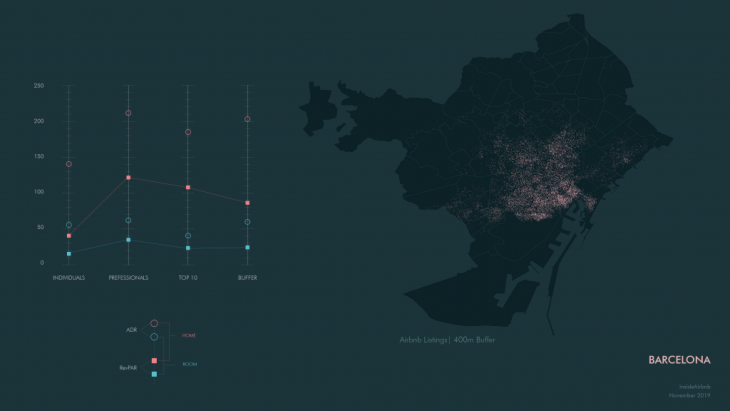AIRBNB IMPACT TO HOUSINGS IN CITIES
This crisis has added fuel to the contentious debate over Airbnb, a startup technology company that facilitates short-term rentals (STRs) of residential homes to tourists. Whereas Airbnb and its users tout its positive effects on tourism, cultural exchange, and the environment, its critics contend that Airbnb harms neighborhoods, distorts the housing market, undermines labor unions, and exacerbates Barcelona’s affordable housing crisis. In regulating Airbnb, policymakers seek to curb Airbnb’s impacts on neighborhood character and housing while harnessing the economic activity it brings.
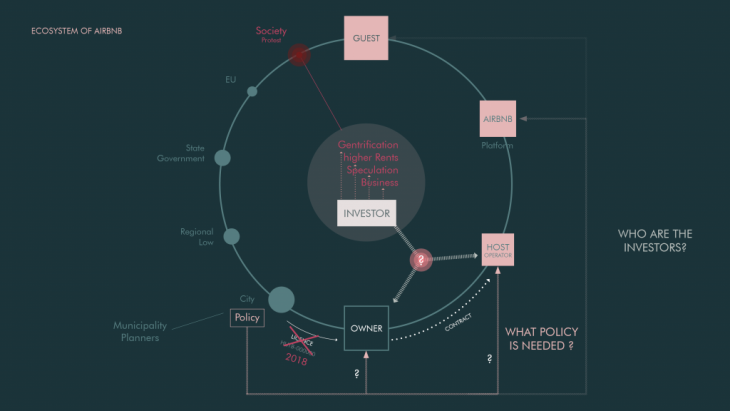
The Airbnb ecosystem framework
PROFESSIONAL VS INDIVIDUAL HOST
To understand the Airbnb impact to a city, we first differentiate the type of Airbnb host by how they operate their listing or advertisement. The first type of host is Individual Host, this type of host is the very basic idea of home sharing service between individuals, where a person rents its place to another person. The second type of host is the Professional Host, where one person rents multiple rooms or apartments to the market, in some cases the host is a commercial company using Airbnb to rent homes, causing local residents to move out of their original neighborhoods.
This project explores how STRs affect the price of Airbnb rental market and how the two different types of host compete in renting their Airbnb rentals in Barcelona. Furthermore, the outcome of the research will explore on how municipal policymakers could best regulate Airbnb, most importantly in order to draw up a protocol to help manage the impact from the city’s large amount of tourist apartments.
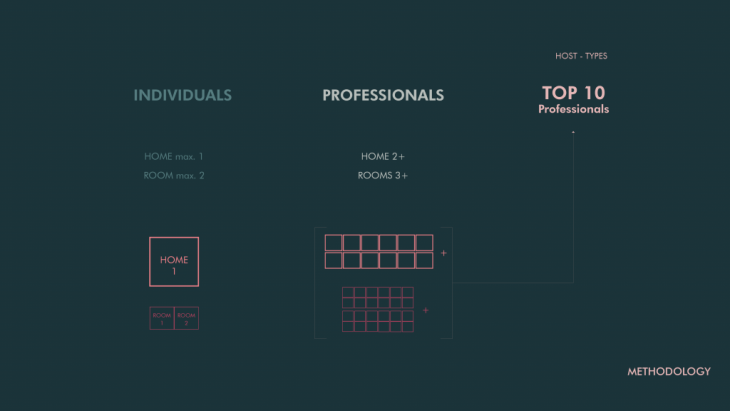
METHODOLOGY
AIRBNB LISTING TYPE
We first begin by analysing the listing type of all of the rental houses and apartments that are advertised in Barcelona. Airbnb hosts can list entire homes/apartments, private or shared rooms. Depending on the room type, availability, and activity, an Airbnb listing could be more like a hotel, disruptive for neighbours, taking away housing, and illegal.
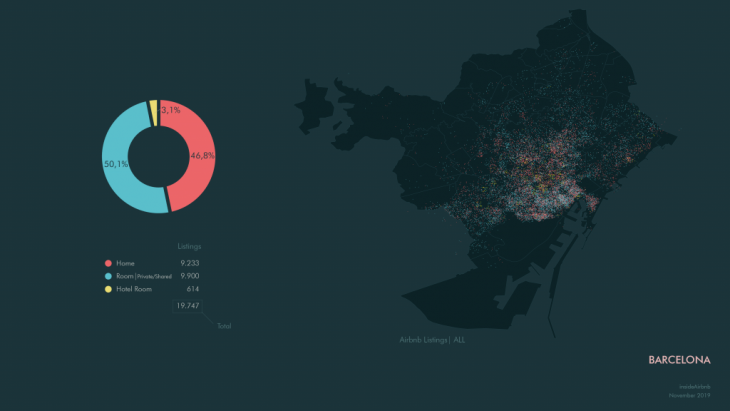
Airbnb listing types in Barcelona
ROOM TYPE
We then continue by filtering the most room type that is being offered on the market used by the two types of host, that is the individual and professional host. We also identified the top 10 host among the professionals, and determine which room type is mostly used by them as a medium to operate their business.
During this step we found that in Barcelona, of all the room types that is advertised on the market by individual host, 56% are shared room. Where as among the professionals as much as 52%. In contrary, the top 10 professional hosts are renting an entire home apartments in all their listings.
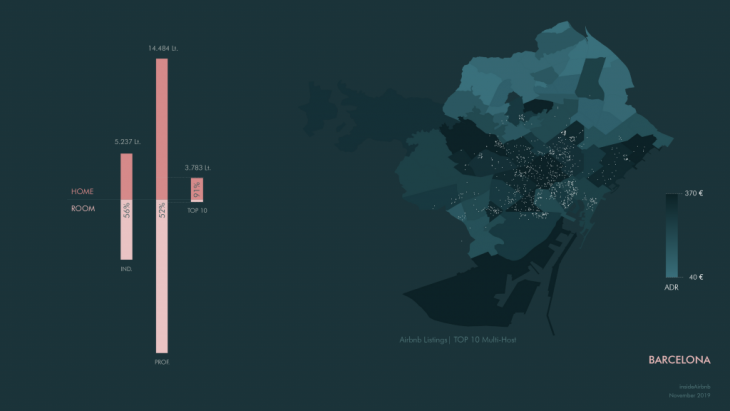
TOP 10 PLAYERS
Going further deep into the top 10 professionals, we then map the existing listings that are distributed all over the city of Barcelona. Questions such as; where is it concentrated, which top 10 host has the most listing in Barcelona, which neighborhood has the most professionals meddling could be answered.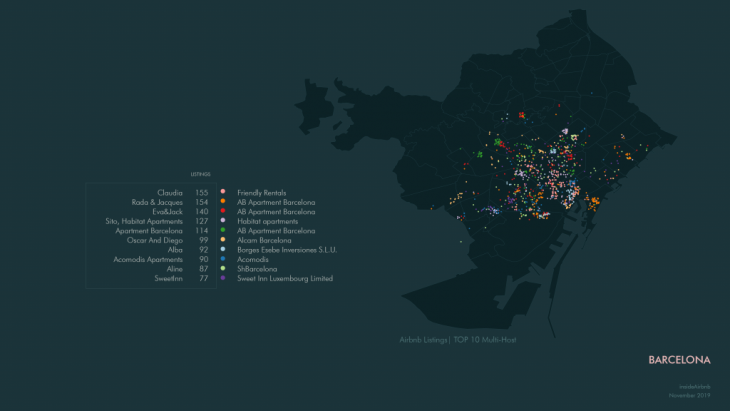
400m BUFFER
ANALYSIS IN SELECT CITIES (SAN FRANCISCO, BERLIN, MALLORCA, HONG KONG)
SAN FRANCISCO
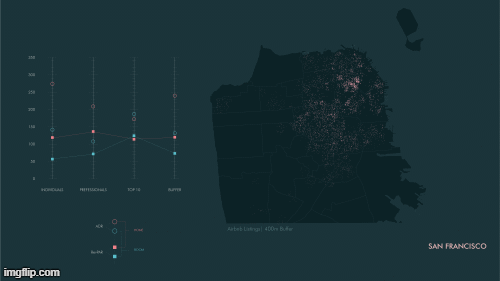
BERLIN
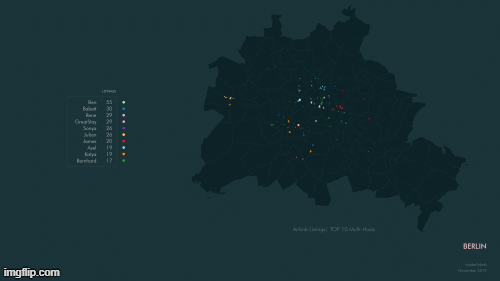
MALLORCA
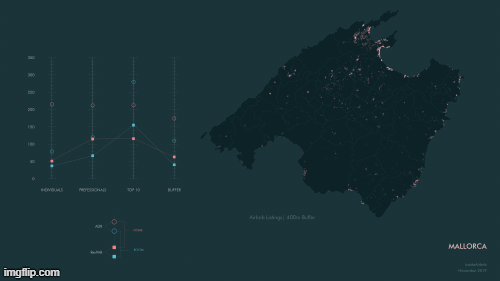
HONG KONG
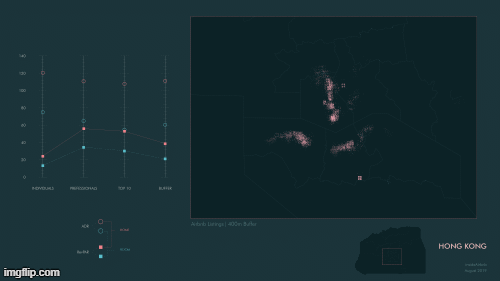
RESEARCH FINDINGS
With the fact that the professional host are dominating the Airbnb market in Barcelona and in some other cities in the world, also looking at the type of room they advertise, we hypothesize that this practice could harm the housing market in Barcelona or other cities in the world.
As shown on the Airbnb Ecosystem chart above, some professional host are managed by larger companies and operators behind them to maintain the listings which can compete with hotel chains. The schemes among these professional hosts varies depending on how many listings they own.
In the case of Barcelona,
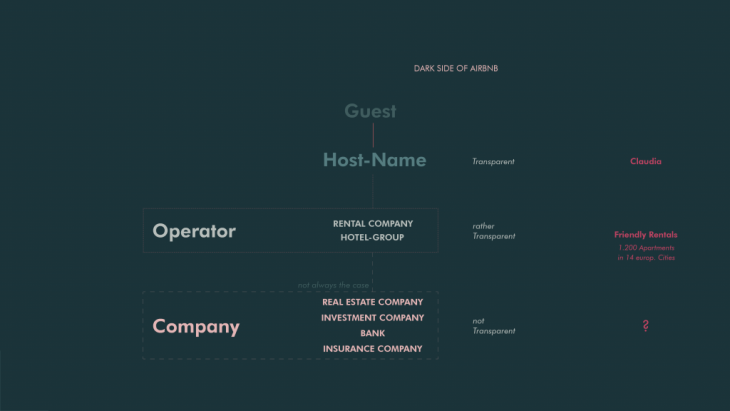
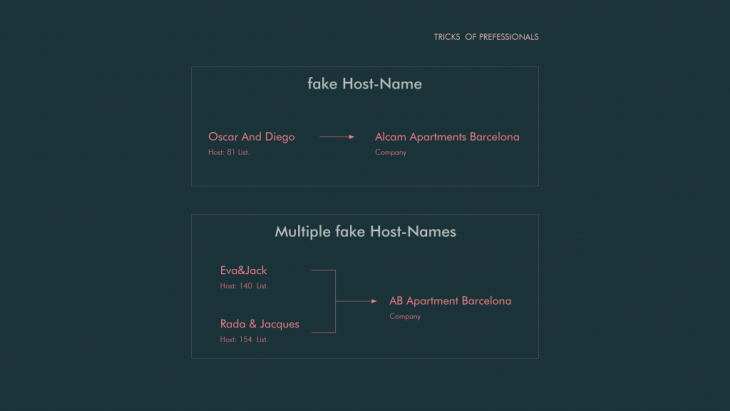
Most of the professional hosts in the top 10 players have been evading strict airbnb regulations set by the city council which requires professional hosts to register their listing by informing their license or permit for business. The tricks we found that these professionals use is by duplicating the same HUT license for different listings that they own.
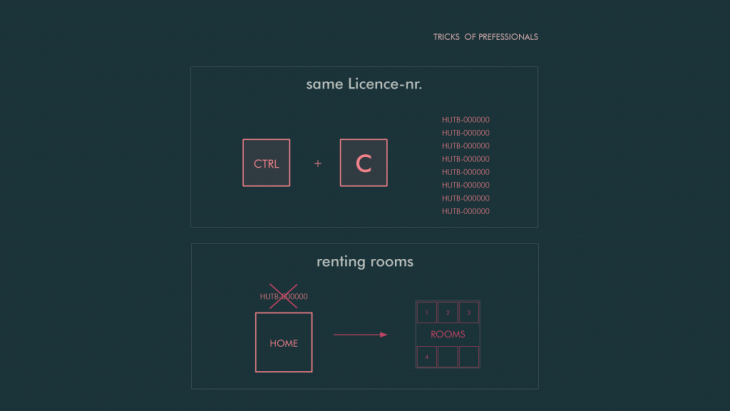
EXISTING APPROACHES TO REGULATING THE SHARING
ECONOMY
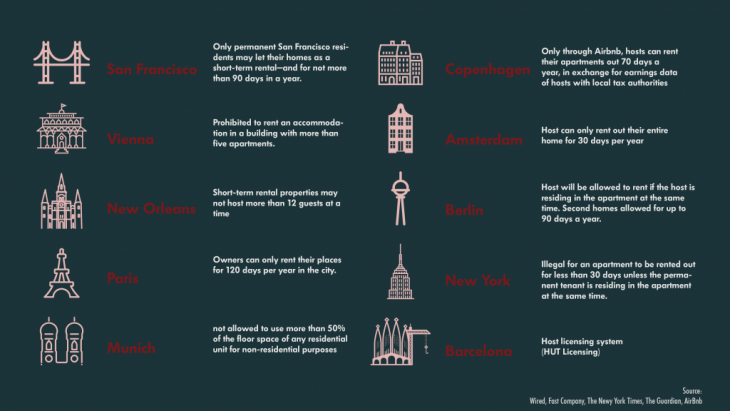
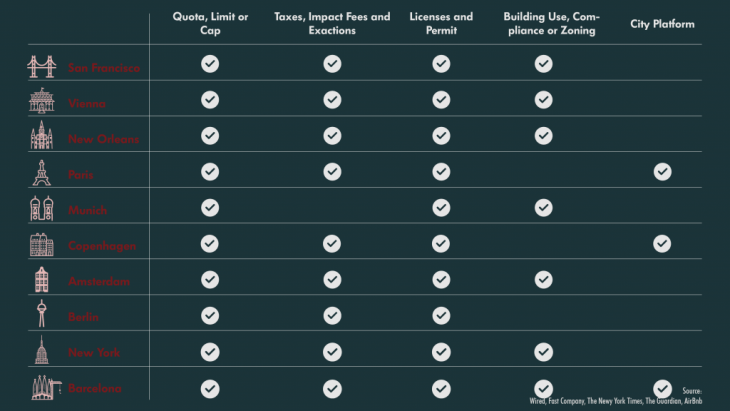
FUTURE OPTIONS FOR REGULATION
To this date, there has been almost no discussion of how the sharing economy businesses relate to existing local government regulatory structures, which is a surprise given that many sharing economy businesses have violated state or local government laws. This project seeks to begin a conversation about this rapidly evolving part of the economy that has in some extent greatly disrupted the urban fabric. Specifically, in short-term rental business, legislation needs to differentiate between regular people sharing their homes and professionals running a business.
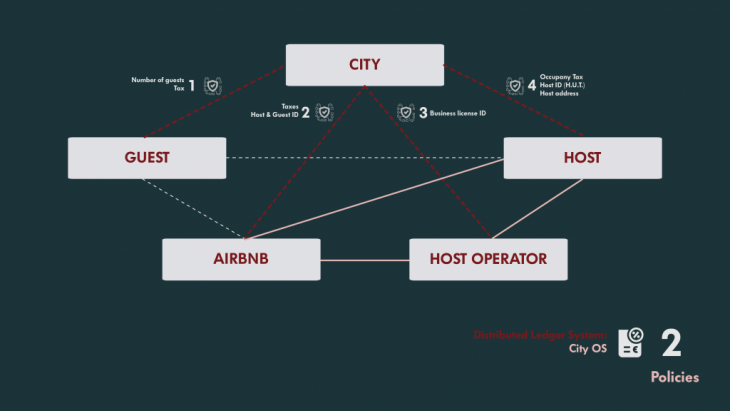
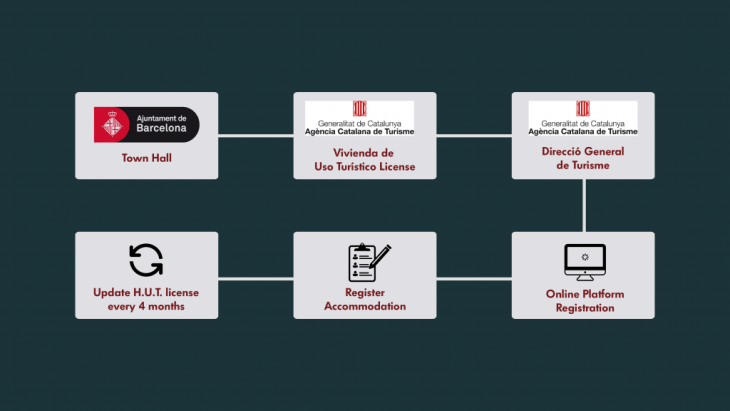
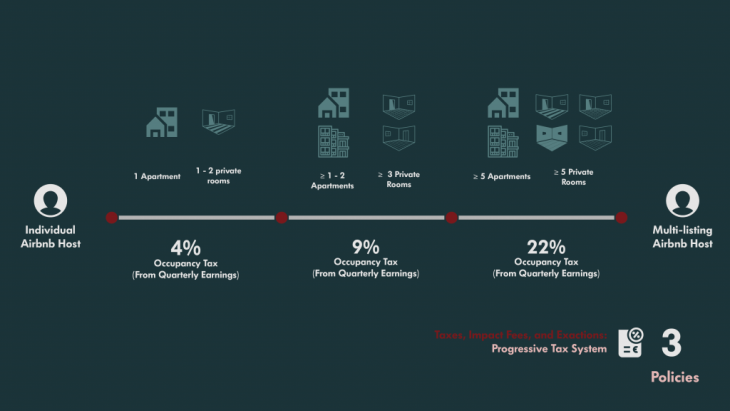
Behind Airbnb is a project of IaaC, Institute for Advanced Architecture of Catalonia
developed at Master in City & Technology in (2019/2020) by:
Students: Aryo Dhaneswara, Jochen Morandell, Rashid Gilfanov
Faculty: Luis Falcon
